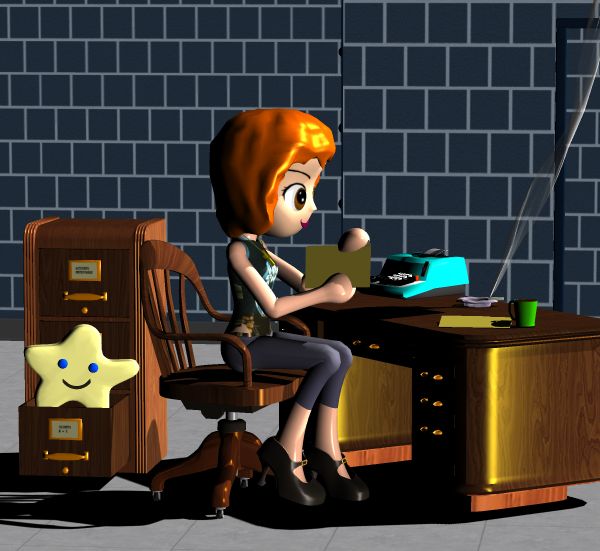Monday, May 27, 2013
No, that's not "conservative"
Local radio, mostly autopilot on an ordinary day, gets even worse on a holiday. All programs are old taped stuff, and nobody is on duty to notice a complete loss of signal. One of the national news services was clearly using interns or Siri to write its scripts, resulting in:
"Memorial services were held in the US city of Oklahoma today for 24 victims of the wind tunnel."
City of Oklahoma? Wind tunnel? Jesus.
 Finally found something that wasn't taped, but it wasn't an improvement. Local R-party talker "Rydell" was reciting the R-party talking points against the Online Sales Tax bill. He was claiming that small online businesses would fail entirely if forced to keep track of multi-state tax.
Absolute nonsense in three different ways.
(1) If you're a constitutionalist, you should be gloriously happy to see states getting more revenue. Some of the states are still civilized, and if they have more revenue they can become stronger in comparison to the Feds, who have been 1000000% Satanic since 1989.
(2) If you favor anything resembling civilized values, and if you favor small business, you should be gloriously happy to see Amazon and Google paying more tax. This means that smaller businesses, both online and physical, will have less of a disadvantage against the 100000000% pure Satan Amazon and Google.
(3) The idea that small online businesses will be overwhelmed is nonsense. I once worked as bookkeeper for a small construction company that operated in 5 states. We paid sales tax in all 5 states, and it was nothing special. I kept a set of blank tax forms for each state, and kept separate tallies in the journal. Quarterly returns took maybe a few hours. Of course this was loooong** before computers were available. Pencil and paper, Olivetti Summa. Now the task is automated, and this particular bill would provide free software.
By definition, small online companies do a small amount of business with a limited number of locations. The task is not going to be difficult.
Finally found something that wasn't taped, but it wasn't an improvement. Local R-party talker "Rydell" was reciting the R-party talking points against the Online Sales Tax bill. He was claiming that small online businesses would fail entirely if forced to keep track of multi-state tax.
Absolute nonsense in three different ways.
(1) If you're a constitutionalist, you should be gloriously happy to see states getting more revenue. Some of the states are still civilized, and if they have more revenue they can become stronger in comparison to the Feds, who have been 1000000% Satanic since 1989.
(2) If you favor anything resembling civilized values, and if you favor small business, you should be gloriously happy to see Amazon and Google paying more tax. This means that smaller businesses, both online and physical, will have less of a disadvantage against the 100000000% pure Satan Amazon and Google.
(3) The idea that small online businesses will be overwhelmed is nonsense. I once worked as bookkeeper for a small construction company that operated in 5 states. We paid sales tax in all 5 states, and it was nothing special. I kept a set of blank tax forms for each state, and kept separate tallies in the journal. Quarterly returns took maybe a few hours. Of course this was loooong** before computers were available. Pencil and paper, Olivetti Summa. Now the task is automated, and this particular bill would provide free software.
By definition, small online companies do a small amount of business with a limited number of locations. The task is not going to be difficult.
 = = = = =
**Footnote: Well, actually it wasn't all that loooong. This was around 1975, which was the same year IBM offered their first desktop computer for office use. Spreadsheets and accounting software weren't widely accepted until 10 years later, which still isn't a loooong time! I guess those particular 10 years were a subjectively loooong time in my own life, with two major career changes and several major changes of 'operating mode'.
= = = = =
**Footnote: Well, actually it wasn't all that loooong. This was around 1975, which was the same year IBM offered their first desktop computer for office use. Spreadsheets and accounting software weren't widely accepted until 10 years later, which still isn't a loooong time! I guess those particular 10 years were a subjectively loooong time in my own life, with two major career changes and several major changes of 'operating mode'.
 Finally found something that wasn't taped, but it wasn't an improvement. Local R-party talker "Rydell" was reciting the R-party talking points against the Online Sales Tax bill. He was claiming that small online businesses would fail entirely if forced to keep track of multi-state tax.
Absolute nonsense in three different ways.
(1) If you're a constitutionalist, you should be gloriously happy to see states getting more revenue. Some of the states are still civilized, and if they have more revenue they can become stronger in comparison to the Feds, who have been 1000000% Satanic since 1989.
(2) If you favor anything resembling civilized values, and if you favor small business, you should be gloriously happy to see Amazon and Google paying more tax. This means that smaller businesses, both online and physical, will have less of a disadvantage against the 100000000% pure Satan Amazon and Google.
(3) The idea that small online businesses will be overwhelmed is nonsense. I once worked as bookkeeper for a small construction company that operated in 5 states. We paid sales tax in all 5 states, and it was nothing special. I kept a set of blank tax forms for each state, and kept separate tallies in the journal. Quarterly returns took maybe a few hours. Of course this was loooong** before computers were available. Pencil and paper, Olivetti Summa. Now the task is automated, and this particular bill would provide free software.
By definition, small online companies do a small amount of business with a limited number of locations. The task is not going to be difficult.
Finally found something that wasn't taped, but it wasn't an improvement. Local R-party talker "Rydell" was reciting the R-party talking points against the Online Sales Tax bill. He was claiming that small online businesses would fail entirely if forced to keep track of multi-state tax.
Absolute nonsense in three different ways.
(1) If you're a constitutionalist, you should be gloriously happy to see states getting more revenue. Some of the states are still civilized, and if they have more revenue they can become stronger in comparison to the Feds, who have been 1000000% Satanic since 1989.
(2) If you favor anything resembling civilized values, and if you favor small business, you should be gloriously happy to see Amazon and Google paying more tax. This means that smaller businesses, both online and physical, will have less of a disadvantage against the 100000000% pure Satan Amazon and Google.
(3) The idea that small online businesses will be overwhelmed is nonsense. I once worked as bookkeeper for a small construction company that operated in 5 states. We paid sales tax in all 5 states, and it was nothing special. I kept a set of blank tax forms for each state, and kept separate tallies in the journal. Quarterly returns took maybe a few hours. Of course this was loooong** before computers were available. Pencil and paper, Olivetti Summa. Now the task is automated, and this particular bill would provide free software.
By definition, small online companies do a small amount of business with a limited number of locations. The task is not going to be difficult.
 = = = = =
**Footnote: Well, actually it wasn't all that loooong. This was around 1975, which was the same year IBM offered their first desktop computer for office use. Spreadsheets and accounting software weren't widely accepted until 10 years later, which still isn't a loooong time! I guess those particular 10 years were a subjectively loooong time in my own life, with two major career changes and several major changes of 'operating mode'.
= = = = =
**Footnote: Well, actually it wasn't all that loooong. This was around 1975, which was the same year IBM offered their first desktop computer for office use. Spreadsheets and accounting software weren't widely accepted until 10 years later, which still isn't a loooong time! I guess those particular 10 years were a subjectively loooong time in my own life, with two major career changes and several major changes of 'operating mode'.
